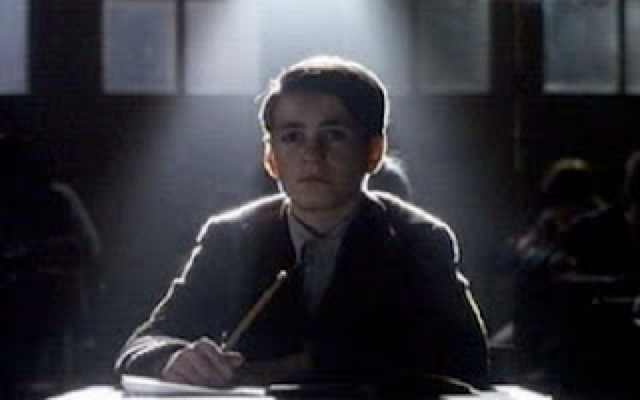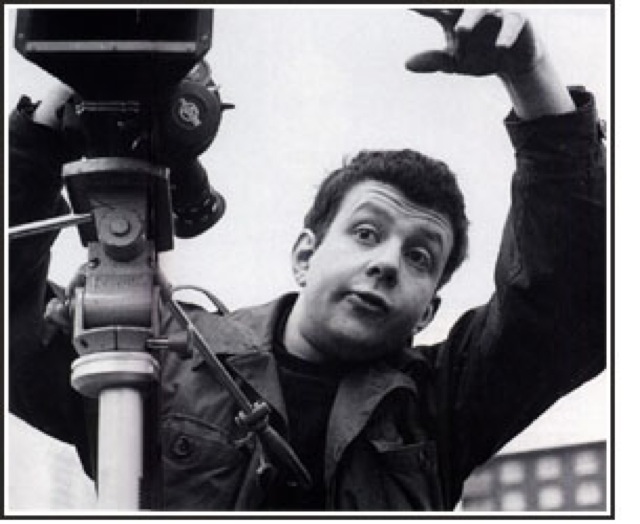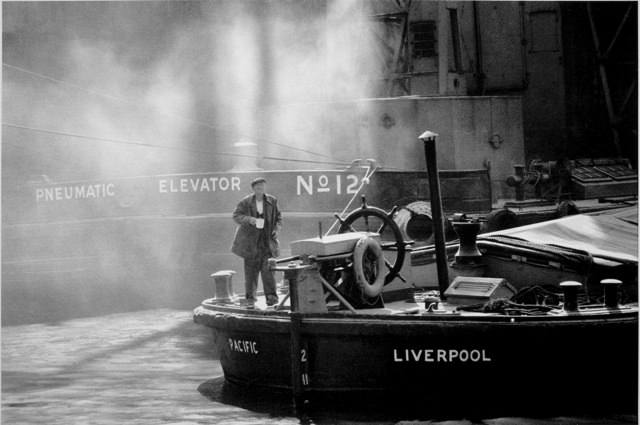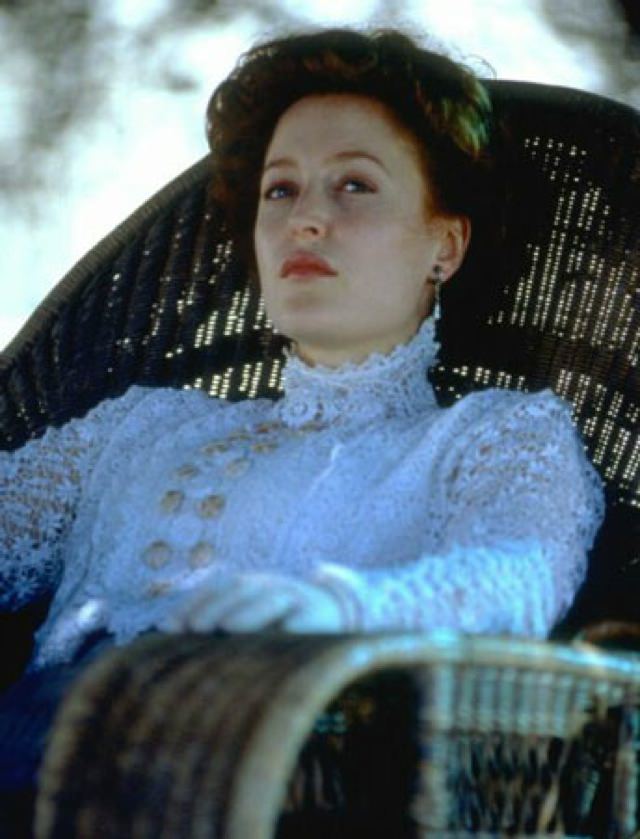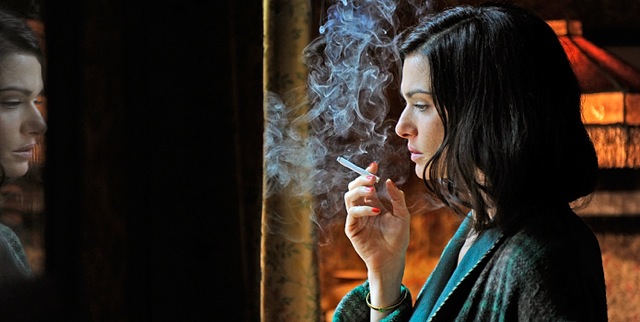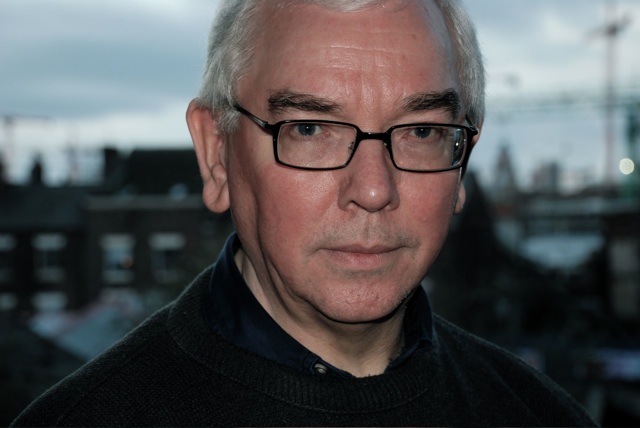A nation must have its culture heroes, and current wisdom among Anglo-American movie critics and programmers has advanced Terence Davies to the position of Britain’s greatest living filmmaker. The claim may have been made as long ago as The Long Day Closes (1991), Davies’ most autobiographical and fully achieved work, which dramatizes his childhood love of the movies; but consensus coalesced in 2008 with the completion of his documentary-essay about his native Liverpool, Of Time and the City—the filmmaker’s first movie in the eight years since adapting Edith Wharton’s The House of Mirth. Beginning this week, viewers in New York will have an unusual chance to assess his work afresh, with the US release of The Deep Blue Sea, his new version of the 1952 Terence Rattigan adultery drama of the same name, coinciding with a retrospective of his work at BAM and a revival of The Long Day Closes at Film Forum.
Drawing as it does on the signature play by the post-World War II prince of London’s West End (and one generally regarded as a middlebrow hack even on Broadway), The Deep Blue Sea is the most obviously and provocatively “English” of Davies’ films. But there are, of course, several other possible contenders for British cine-laureate. These include Ken Loach, the politically-minded director who unexpectedly won the 2006 Palm d’Or at Cannes for his Irish troubles film The Wind That Shakes the Barley; Peter Greenaway, who made several startlingly original early features (The Draughtsman’s Contract and Drowning By Numbers) but has since devolved into a purveyor of post-cinematic claptrap; and Stephen Frears, the prolific workhorse whose movies have racked up a number of Oscar nominations (The Grifters, Dangerous Liaisons, The Queen). Only one, however, is at all credible: Mike Leigh.
Davies and Leigh, who are near contemporaries, have definite points of contact. Radically revising the kitchen sink naturalism that characterized the serious British cinema of the late ’50s and ’60s (Look Back In Anger, A Taste of Honey, Saturday Night and Sunday Morning) both established themselves by showing the downside of British domestic life. Indeed, both grew up in provincial cities (Leigh in greater Manchester, the son of a doctor, and Davies in Liverpool, the youngest of ten children) and both are in some way outsiders. Leigh is a Jew, Davies is gay; neither man will ever be mistaken for Sirs David Lean or Richard Attenborough. Although the irascible Leigh did accept an OBE in 1993, Davies went out of his way to insult the monarch he calls “Betty Windsor” in Of Time and the City.
Their working methods however could hardly be more different. Directed from scripts devised through group improvisation and extensive rehearsals, Leigh’s movies, from his 1988 High Hopes through his most recent Another Year have largely been garrulous, performance-driven ensemble jobs; they tend to rise or fall on the ability of strong characters to personally engage each other in struggle for screen space.
Davies’s films, by contrast, are highly crafted, almost solitary endeavors that typically filter everything through personal and/or collective memory. Distant Voices, Still Lives (1988) is a kind of prenatal memoir, portraying his poor and fractious family in the years immediately preceeding his birth. Set a dozen years later, in the mid-1950s, the free-associative The Long Day Closes is essentially Davies’s distilled recollection of himself at 11, a seemingly friendless child in a dismal working-class Liverpool, transfixed by his experience of the cinema.
Charged with a love for the ineffable—the movies within the movie are heard but not seen—The Long Day Closes is the autobiography of a sensibility more than a person. (In its hyperrealist clarity, stylized lighting, and frequent rain, it seems the template for something like Wong Kar-Wai’s similarly studied memory film In the Mood for Love.) The purity of Davies’s concentration can make an epiphany of even Debbie Reynolds’s tremulously saccharine rendition of the title song from Tammy. The movie one actually sees is often the play of light on drab walls and worn rugs. With consummate subtlety, Davies suggests Liverpool itself as a sort of sound stage.
Leigh has a fondness for cramming movies with comic or grotesque human types. Some are great: The almost insanely cheerful protagonist of Happy-Go-Lucky, a drop of sunshine who makes Prince Mishkin seem like a misanthrope; the warm-hearted, martyred abortionist Vera Drake; and the angry young vagrant who rants and fucks his way to the end of the night in Naked are larger than the movies that seek to contain them. (On the other hand, the pathetic neediness of the character played by Leslie Manville in Leigh’s Another Year made it all but unwatchable, at least for me.)
Advertisement
Davies’s sensitive introversion is the exact opposite. He not only has more compassion for his creatures but the spectacle of their suffering is the subject of the films themselves. With the exception of Of Time and the City, a film that gives full vent to his own bitterness, his post-autobiographical movies have all centered on tragic female protagonists and featuring actress star-turns. The Neon Bible, a gorgeous but confused adaptation of John Kennedy Toole’s precocious first novel, was a loving, if not quite successful, vehicle for Gene Rowlands, the John Cassavetes diva; by contrast, The House of Mirth deployed a limited, over-matched actress (Gillian Anderson of The X Files) in the role of Edith Wharton’s imprudent and naïve Lily Bart with heartbreaking results.
Falling somewhere between these two, The Deep Blue Sea presents the beautiful Rachel Weisz as an even more vulnerable protagonist—Hester Collyer, a well-off married woman who has sacrificed the security of her marriage to a paternal, titled magistrate for a dead-end affair with the younger, poorer, less committed former RAF pilot Freddie Page (Tom Hiddleston). A less confident Lady Chatterly involved with a more diffident lower class lover, Hester is liberated and apparently destroyed by love. No doubt that, at least in England, much of the excitement around The Deep Blue Sea derives from the movie’s daringly retro, un-ironic celebration of its source material. (By comparison, Leigh’s only attempt at such wildly square material is his lone period piece, the unlikely and unexpectedly moving Topsy Turvy (2000), which dramatized the collaboration of Gilbert and Sullivan in creating The Mikado.)
But in another sense, The Deep Blue Sea is pure Davies. It has the bell-jar hermeticism, precise sound, perfectly diffused light of The Long Day Closes; the craft is masterful and so long as Davies sticks to the visual—making a mandala of Hester and Freddie’s entwined bodies as she spirals towards death, or giving Hester her Anna Karenina moment, poised at the edge of an underground platform, hair blown by onrushing train—the movie is near rhapsodic.
Davies has no apparent interest in the play’s presumed homosexual subtext (Rattigan, who was gay, had an involvement with a younger man who killed himself) except in so far as Hester is the victim of her own illicit passion. The opening 10 minutes devoted to her suicide attempt, all but devoid of dialogue and set to Samuel Barber’s Violin Concerto, is as fine as anything the filmmaker has ever done.
Davies’s adaptation is relatively spare; would that he had eliminated Rattigan’s big brittle scenes or cut the ponderously corny dialogue (“I knew in that tiny moment I had no power to resist him”) altogether. Debbie Reynolds is heard but not seen in The Long Day Closes—why does Rachel Weisz need to say things like “It’s sad perhaps, but hardly Sophocles” given the eloquence of her tentative gestures and subtly agonized expressions? Leigh is arguably Britain’s greatest director, but for pure film making, Davies is in another class. The Deep Blue Sea could truly have been a magnificent silent movie. It’s not Britishness that makes Davies a major film artist, it’s his adoration of the medium.

